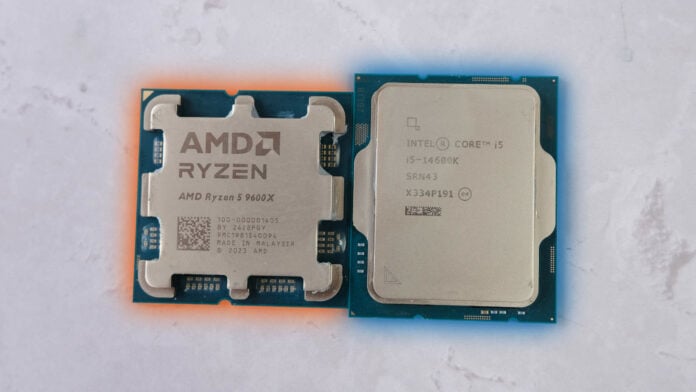AMD has rolled out the red carpet for its mid-range Zen 5 processors, setting the stage for the next few generations with promises of exceptional efficiency. Since Intel’s Core Ultra CPUs are still a little ways away, Team Red’s latest locks antlers with Raptor Lake Refresh, but just how far do these architectural improvements compare?
Putting AMD Ryzen 5 9600X and Intel Core i5-14600K head-to-head, we’ve subjected both CPUs to a series of fresh benchmarks. Each should paint a picture, so you know what performance to expect in games and real-world applications. Surprisingly, it’s not as clear-cut as you might expect.
Specs
| AMD Ryzen 5 9600X | Intel Core i5-14600K | |
|---|---|---|
| Cores | 6 | 14 |
| Threads | 12 | 20 |
| TDP | 65W | 125W |
| L3 Cache | 32MB | 24MB |
| Base clock | 3.9GHz | 3.9GHz* |
| Boost clock | 5.4GHz | 5.3GHz* |
| Launch MSRP | $279 / £270 | $319 / £310 |
At face value, you’d be forgiven for thinking Intel runs away with it, considering it more than doubles AMD’s core count, but there’s more than meets the eye here. While Core i5-14600K is certainly beefier, it houses just six performance cores similar to Ryzen 5 9600X. Don’t count the remaining eight out, though, as they’re dedicated to efficiency and best suited to multitasking.
There isn’t a great deal in it between clock speeds and L3 cache, but AMD’s latest has the edge. It also debuts quite a bit cheaper than Team Blue’s chip. At nearly a year old, you’d expect 14600K to be more affordable than it is, but it still runs for $300 / £290 on average, making it a fair fight.
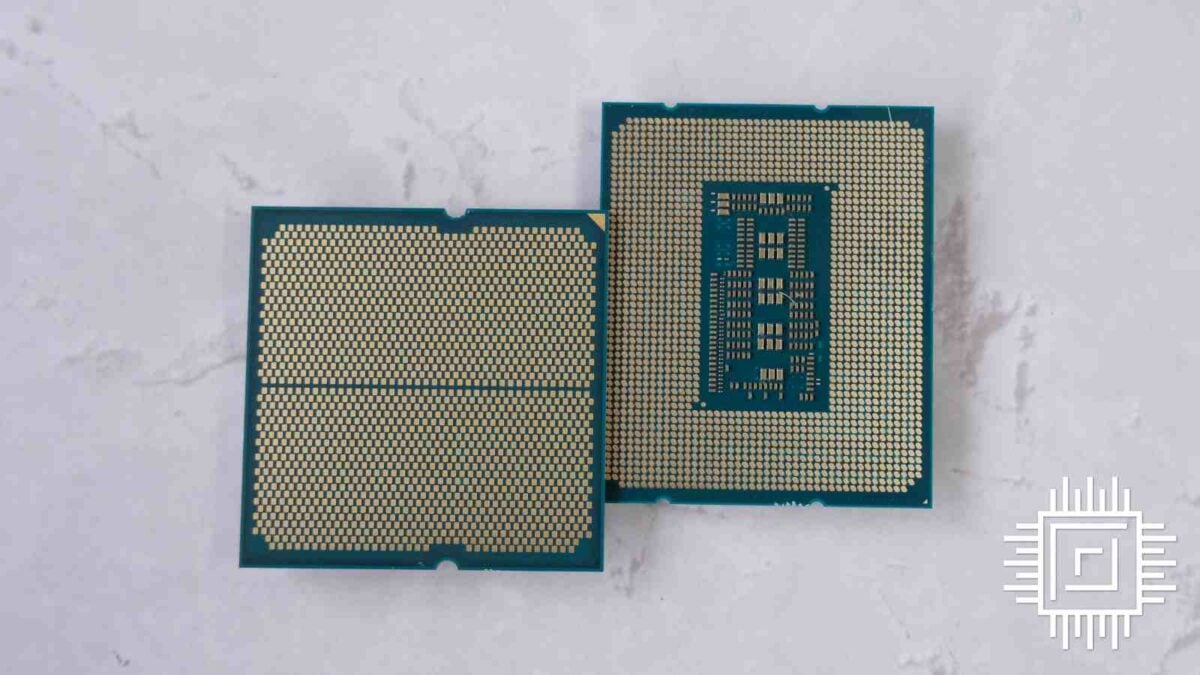
Performance
To bring tests into 2024, we’ve benchmarked both chips from scratch. Our AMD chip sat on top of MSI X670E Ace, while Intel ran on ASRock Phantom Gaming Z790 Nova WiFi, each using the latest BIOS available before release. We also checked Core i5-14600K for instability issues, which have run riot in the Intel camp lately, and used only the recommended TDPs.
The rest of the rig includes 64GB Kingston Fury Beast DDR5-6000 RAM, a Zotac GeForce RTX 4090 graphics card to put them through their paces, Arctic Liquid Freezer III 420 to keep them cool, and a be quiet! Dark Power 13 1,000W PSU to feed them.
Productivity

A damning start for Ryzen 5 9600X with 97,315 MIPS in 7-Zip Compression tests as Core i5-14600K storms ahead with 131,732 MIPS. It’s not without reason, though. For 26% less performance, AMD’s chip consumes 48% less power – something to keep in mind with the rest of these results.

Blink, and you’ll miss AMD Ryzen 5 9600X speeding past i5-14600K in Y-Cruncher. Not only is it far quicker than its rival, but it’s also far closer to 14700K in terms of performance.

Showing the strength of its new architecture, Zen 5 flexes in single-core tests. Currently, Team Red’s new chip is surpassed only by other Ryzen 9000 series CPUs that are higher in the stack.

While both CPUs functionally have the same number of performance cores, Intel’s extra efficient cores come in clutch for Geekbench 6. A score of 17,867 gives 14600K a substantial lead over 9600X result of 15,158.

AI is the current hot topic, and AMD proves there are no other CPUs that should be on your radar. Ryzen 9000 is the consumer king for generative tasks, at least as far as float32, float16, and int8 data types are concerned, with 9600X providing a great entry.
Rendering

Animators might want to stick with Intel. 14600K remains dominant in Blender, rendering up to 310.6 samples per minute, leaving AMD Ryzen 5 9600X, and Ryzen 7 9700X for that matter, in its proverbial dust.


Don’t adjust your monitor; this is just an uncanny sense of deja vu from Geekbench 6. Once again, AMD Ryzen 5 9600X out-muscles its competition in single-core but struggles to keep pace in multi-core, relinquishing the crown to Core i5-14600K. As expressed in our Ryzen 5 9600X review, it’s entirely down to the lower power draw.



Despite leaping ahead in Adobe Photoshop, AMD takes a back seat to Intel in other rendering software. Quite simply, extra cores marry up nicely with productivity.
Memory



It’s a clean sweep for Intel, which is a master of memory compared to AMD. Handling our 64GB of Kingston memory rather well, 14600K sports marginally faster write speeds and latency, but its read speeds blow Ryzen 5 9600X out of the water with frequencies that are 29% quicker.
Gaming

Ryzen 9000X doesn’t match 7000X3D in gaming, but it does hold its own against Intel. 3DMark Speed Way is a DirectX 12 Ultimate test with sprinkles of real-time ray tracing and global illumination. Both CPUs remain steadfast, but Ryzen 5 9600X just about clinches the win.
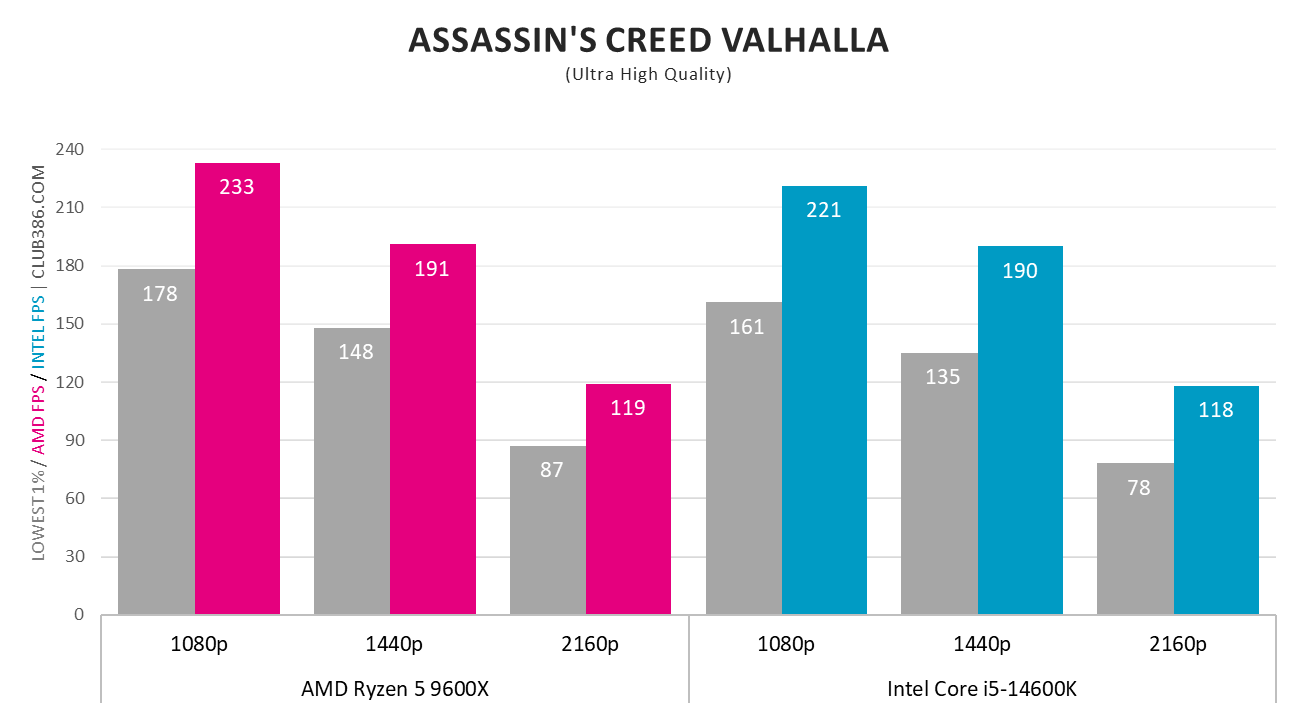
Both processors are mostly neck and neck in Assassin’s Creed Valhalla, particularly at 1440p and 2160p resolution. AMD Ryzen 5 9600X enjoys more consistency with higher lows, meaning you should see fewer dips, and pulls ahead in the HD arena.
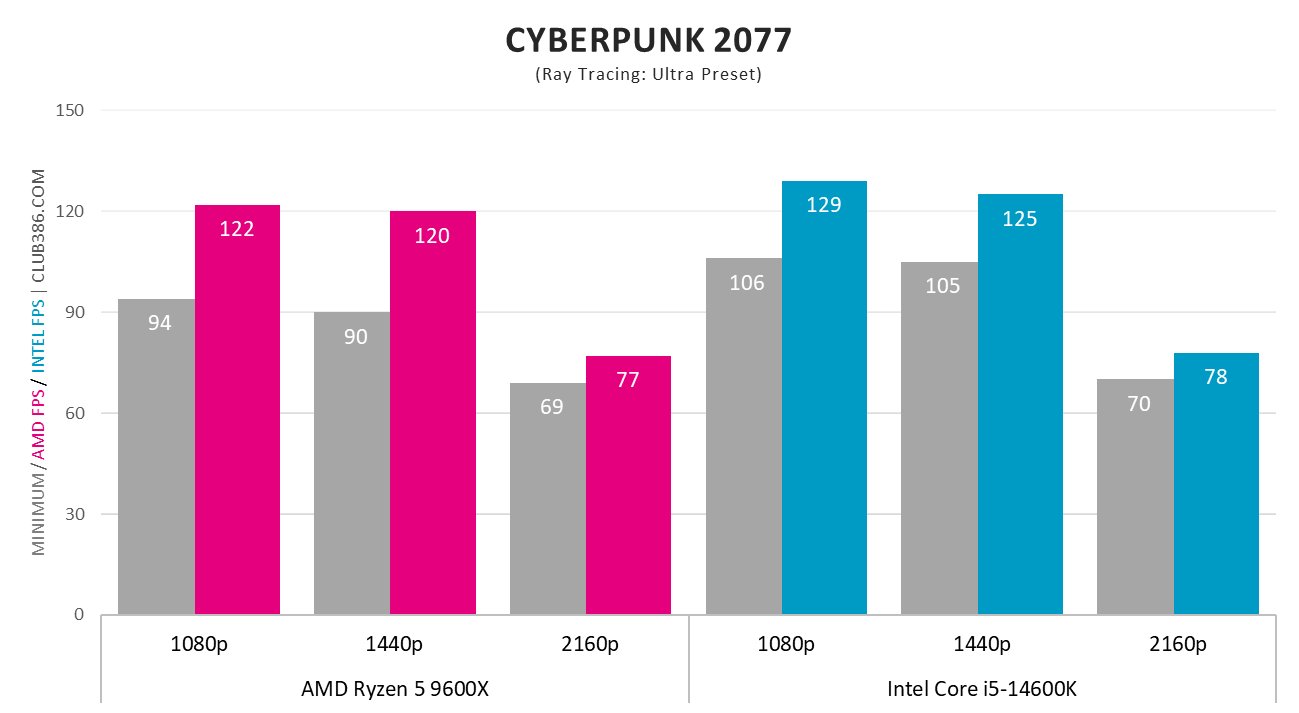
Intel flips the script with Cyberpunk 2077, as 14600K strides ahead with an average of 6fps more at HD and QHD. It’s not much, but should make Night City look just a touch smoother. By the time you reach UHD, you’ll hardly tell the difference with just a single frame between them.
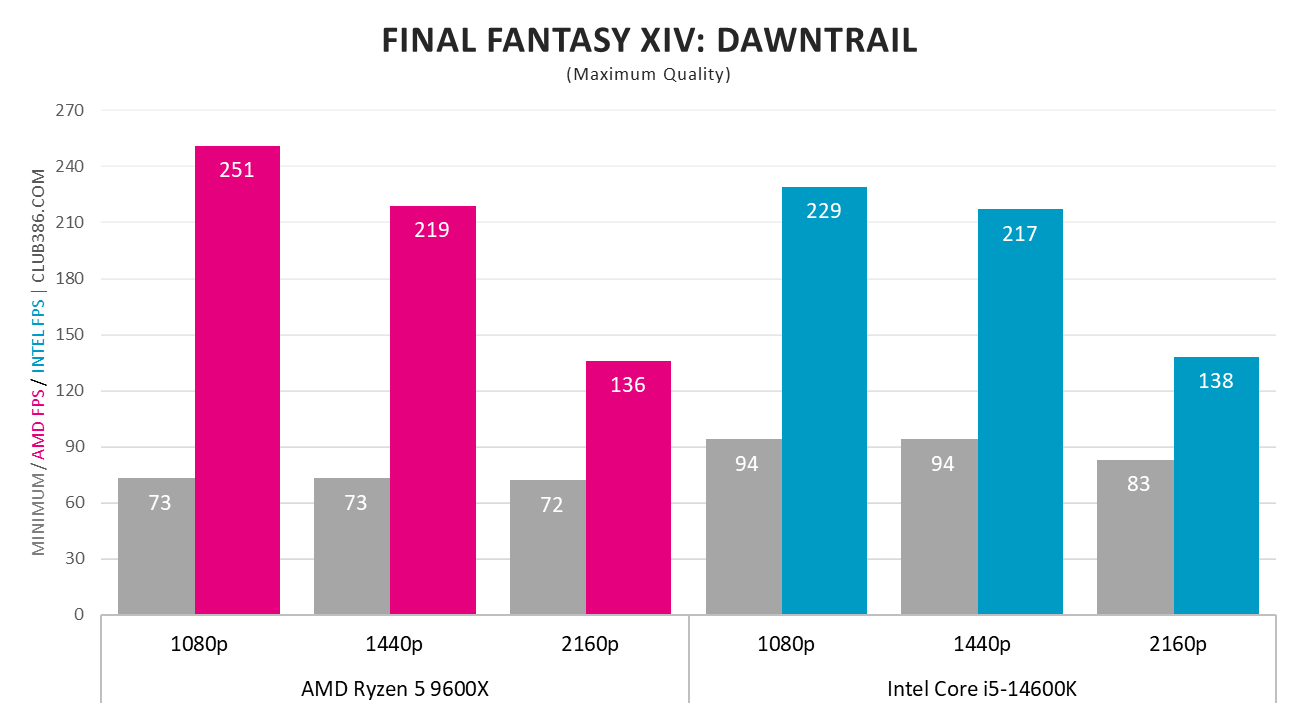
Neither CPU has trouble running Final Fantasy XIV: Dawntrail at max settings, but AMD offers a trade-off: a 22fps lead at HD for noticeably lower minimums. A staple of the MMORPG, Intel also suffers dips, but not quite as harshly. Some may say its tamer averages are a little more appealing in certain lights.
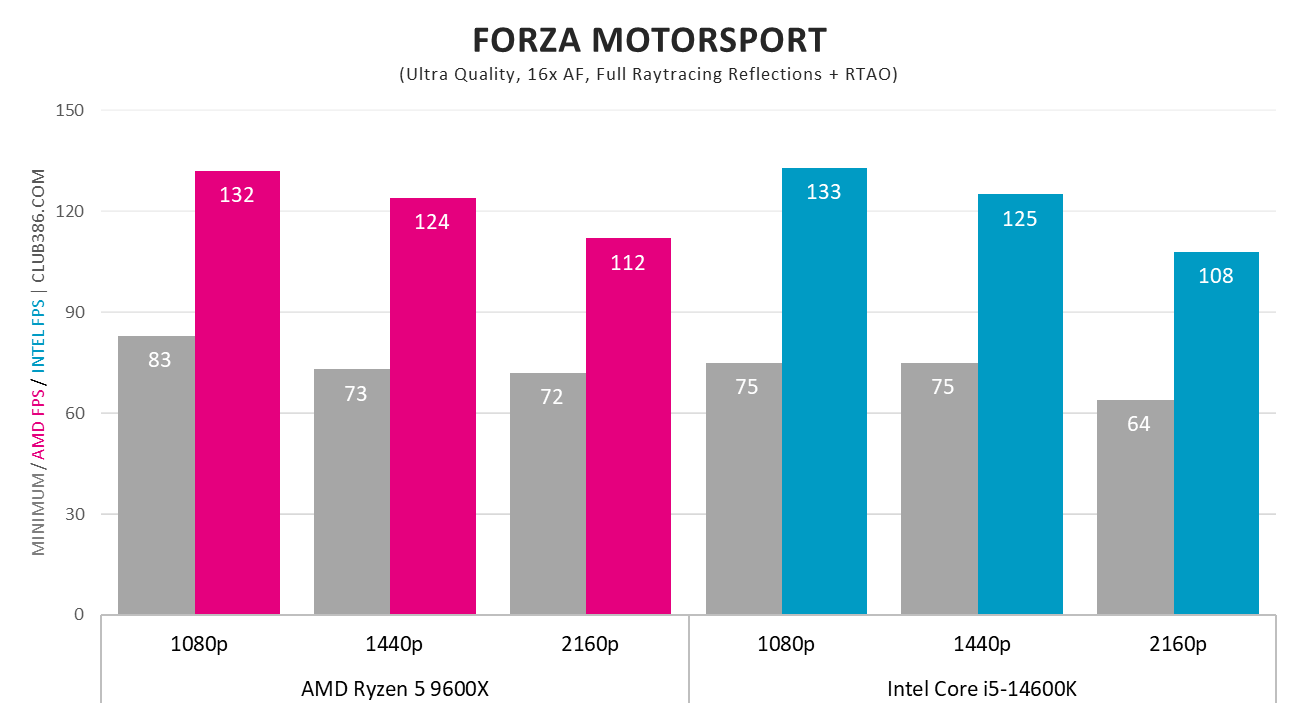
Perhaps a testament to Turn 10 Studios and Xbox’s optimisation of Forza Motorsport (2023), the two CPUs are practically indistinguishable. Just three frames between them means it’s like splitting hairs.
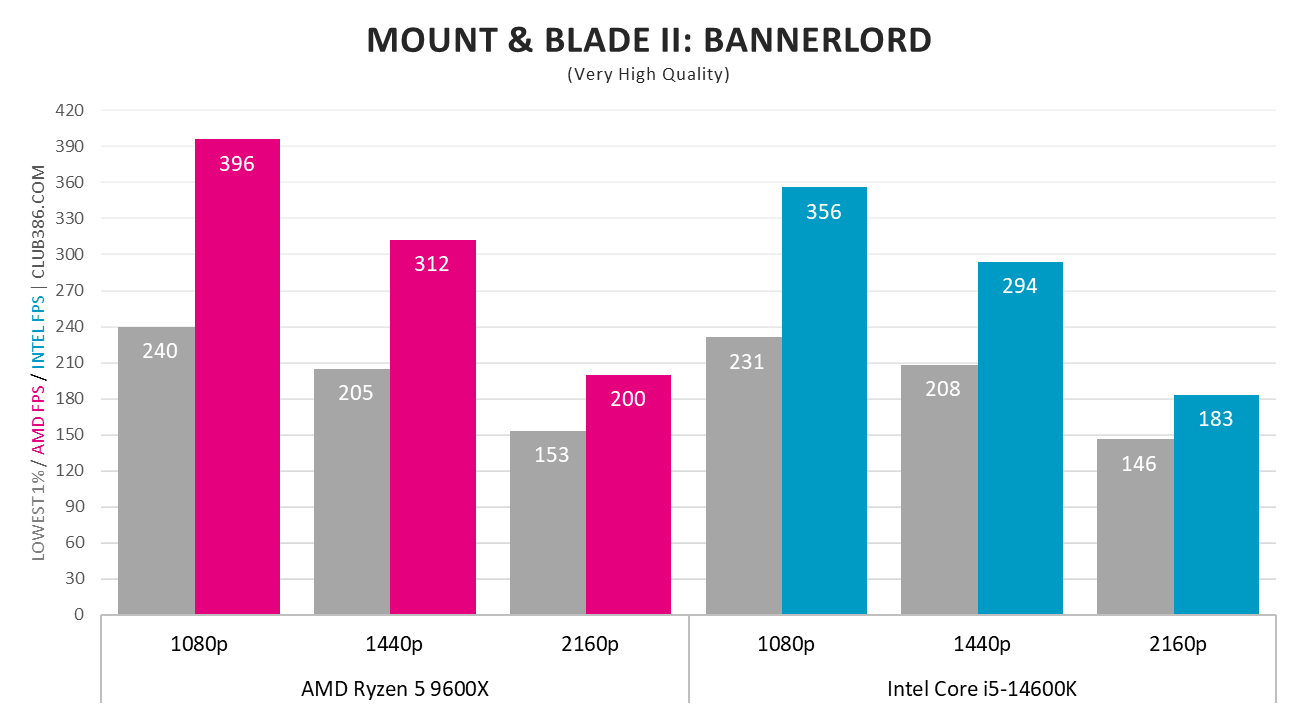
Mount & Blade II: Bannerlord is the first time we’ve seen true separation at higher resolutions. Ryzen 5 9600X manages to jump ahead in all three categories, offering between 17fps and 40fps more than Core i5-14600K. Considering RTS games hit CPUs a little harder than other genres, this is a testament to Zen 5’s gaming chops.
Efficiency

Efficiency is AMD’s pride and joy when it comes to Zen 5, and it shows when under load. System-wide power draw is a staggering 27% lower with Ryzen 5 9600X, saving you a chunk on that electric bill. It does run a little higher at idle compared to 14600K, though, which is something to consider.

You know the famous saying: with great power comes even greater heat. Temperatures show the merits of going green, as AMD shaves 27% off its thermals for a, frankly, staggering 61.2°C. It has Intel wiping sweat from its brow, and so it should at a toasty 84°C.
Value

In a Shyamalanian-like twist, Core i5-14600K still wins the efficiency crown. We get our scores by dividing the Cinebench 2024 score by system-wide power consumption. It just so happens that Intel’s sheer performance outpaces its lofty power requirement, but that shouldn’t shake just how respectful Ryzen is in this department.

Using a similar formula, dividing the Cinebench score by the launch retail price is how we get our value rating. This is a little more decisive in 14th Gen’s favour and doesn’t factor in that 14600K has since seen a few discounts. At the time of writing, Intel’s CPU costs $300 / £290, which brings the score to up to 4.66.
Generally speaking, AMD processors tend to discount quicker, leaving hope for the future, but the present shines blue.
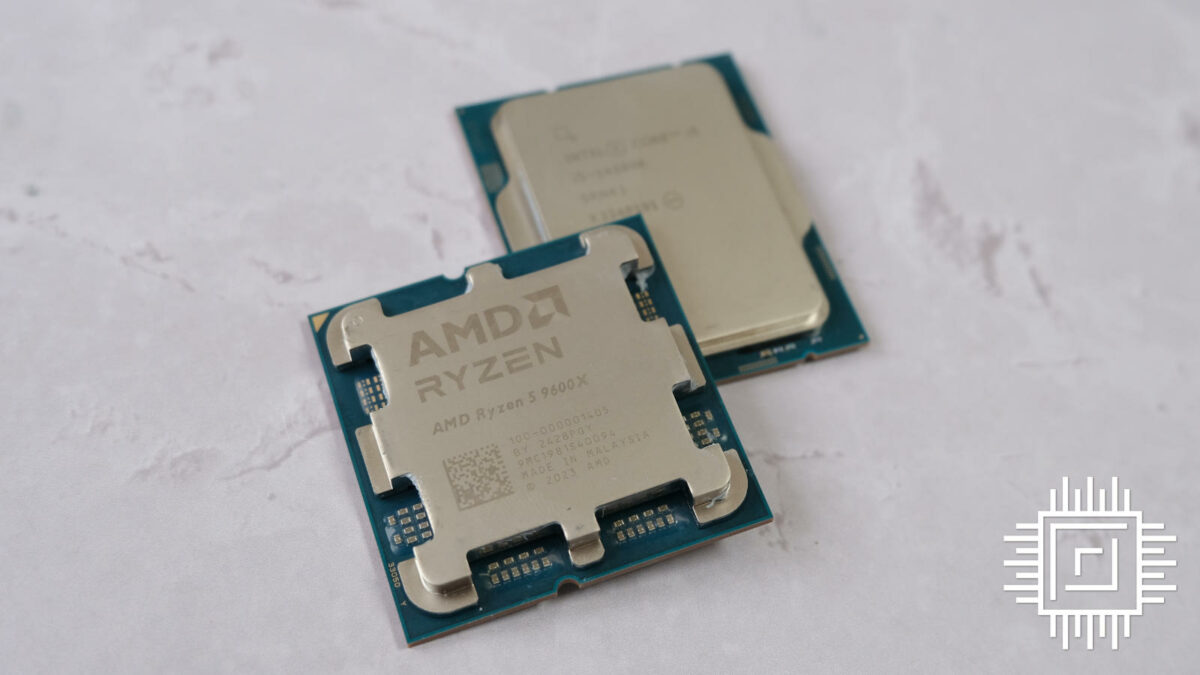
Conclusion
AMD Ryzen 5 9600X doesn’t quite turn the mid-range market on its head, but it’s not without merit. It succeeds in its mission to offer one of the most efficient chips out there and regularly goes toe-to-toe with its rival in gaming. Built on the AM5 platform, it’s easy to swap from Ryzen 7000 to 9000, but with such incremental performance increases, I’m not sure you’d want to.
Intel Core i5-14600K better serves the productivity arena, where electric bills are second to raw performance. Since it’s a 14th Gen processor over 65W, it’s important to note that the architecture features inherent instability issues, but the brand assures that there are preventative measures in place via a microcode update and extended warranties to protect you.
Both CPUs cater to very specific needs, but 9600X particularly struggles with value for what you get. There’s every chance AMD plans to reduce its $299 / £270 price tag by the time Core Ultra processors roll around later this year, but speculation doesn’t help you upgrade here and now. With Ryzen 9000X3D also on the horizon, recommending either becomes a tough prospect.
For further reading, head to AMD Ryzen 7 9700X vs. Intel Core i7-14700K to see how the two siblings stack up against each other.
AMD Ryzen 5 9600X
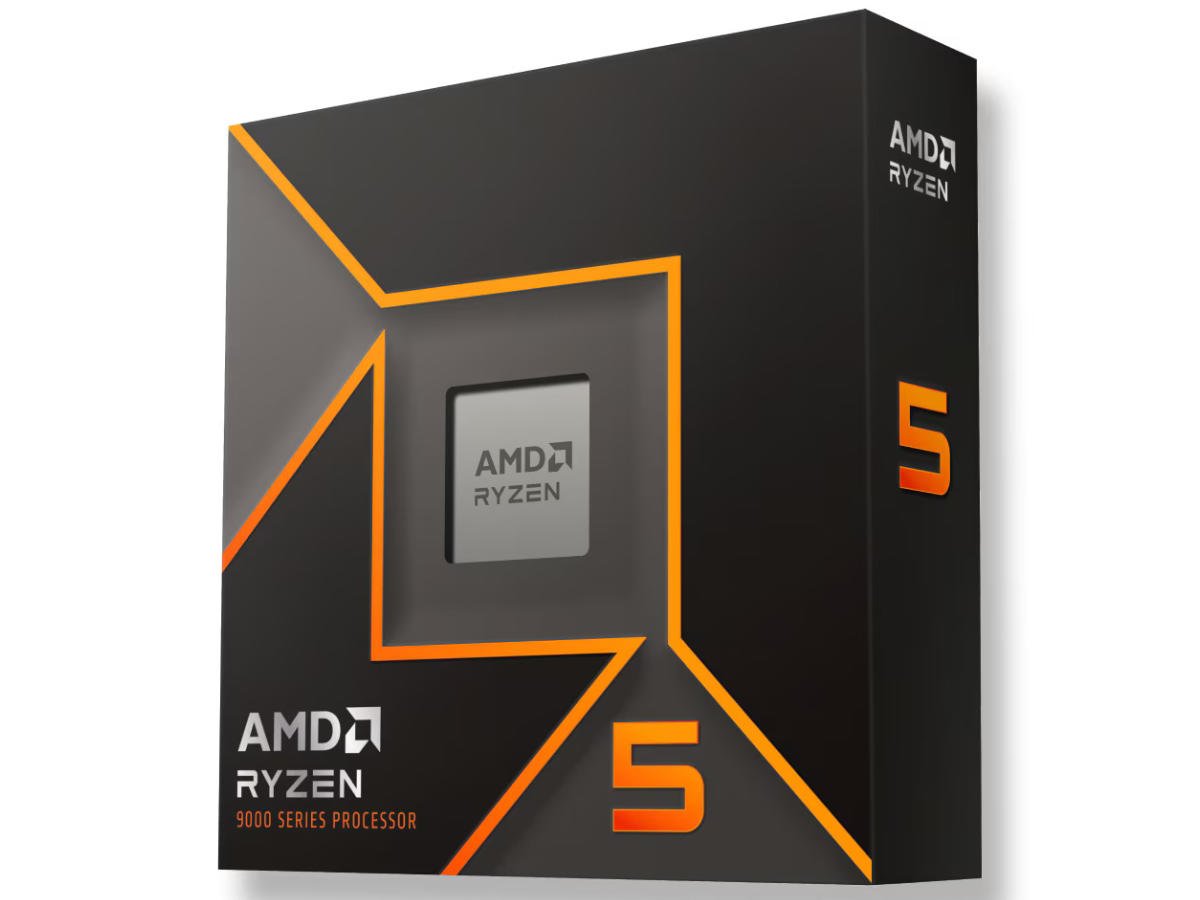
Intel Core i5-14600K
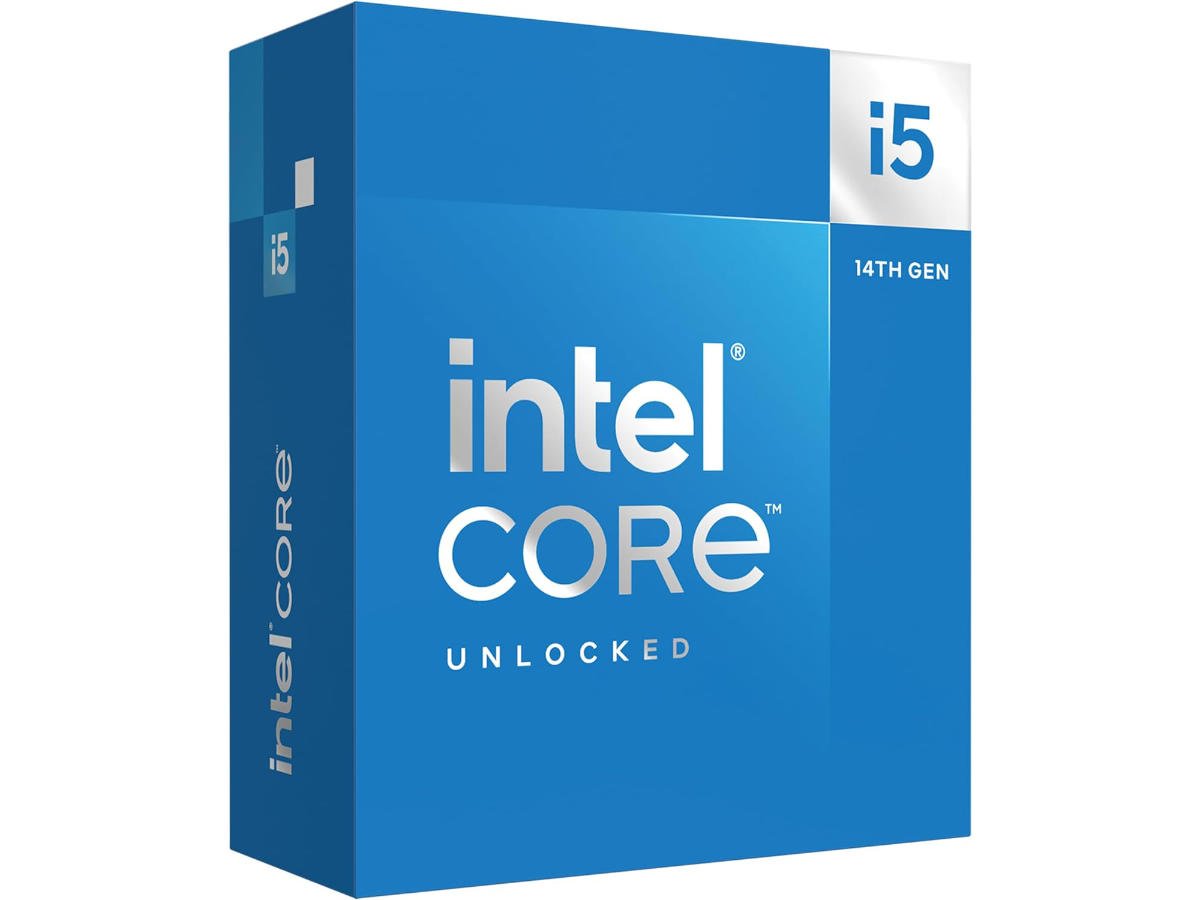
Club386 may earn an affiliate commission when you purchase products through links on our site. This helps keep our content free for all.
Rest assured, our buying advice will forever remain impartial and unbiased.

